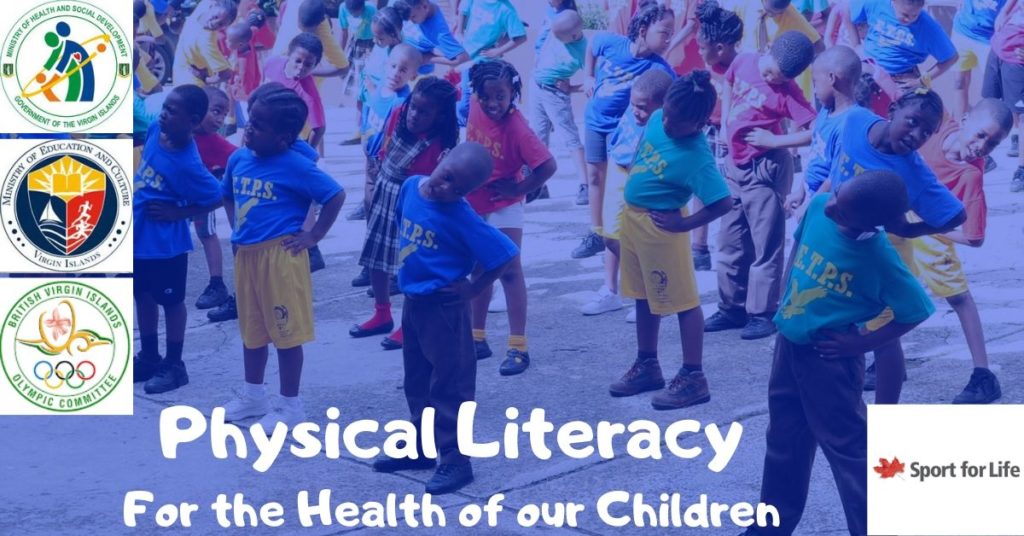
As efforts continue to promote physical activity in the British Virgin Islands, physical literacy assessments will be carried out in 12 schools from September 30th until October 10th.
The assessments are part of the physical literacy mission run through a multi-agency collaboration between the Ministries of Health and Social Development and Education and Culture as well as the BVI Olympic Committee and Canada Sport for Life.
A team of physical literacy specialists from Canada Sport for Life is in the Territory currently working with selected schools to encourage movement across the curriculum.
Education Officer, Mrs. Heida Joyles-Selwood said “The team will be introducing the PLAY Builder programme to physical education teachers and working with classroom teachers and early childhood practitioners to encourage physical activity.”
According to Mrs. Joyles-Selwood, physical literacy has been incorporated into the overall Healthy Schools initiative launched by the Ministry of Education in collaboration with the Ministry of Health and the Caribbean Public Health Agency to improve the diet and physical activity patterns among school children by instilling knowledge, skills and providing motivation for adopting healthy lifestyle behaviors.
While all primary schools are participating in the Healthy School Project, only a total of 12 schools – which include public, private and preschools – were selected to participate in phase I of this project.
Participating schools are Althea Scatliffe, Francis Lettsome, Leonora Delville and Jost Van Dyke Primary Schools, Bregado Flax Education Centre-Primary Division, Agape Total Life Academy and Pelican Gate School as well as New Life, Little Light House, New Testament, Visions and Jost Van Dyke preschools.
Initially introduced and funded by the BVIOC, the Physical Literacy campaign is part of the Long Term Athlete Development programme which was launched in the Territory in February 2016 by the steering committee chaired by Mr. Ephraim Penn, President of the BVIOC targetting national federations, schools and the community.
The community is encouraged to support this initiative by increasing their child’s physical activity on a daily basis.
“Physical literacy is the motivation, confidence, physical competence, knowledge and understanding to value and take responsibility for engagement in physical activities for life.” – The International Physical Literacy Association, May 2014
It increases physical fitness and health and promotes healthy lifestyle habits, social skills, physiological wellness, cognitive skills and educational success.